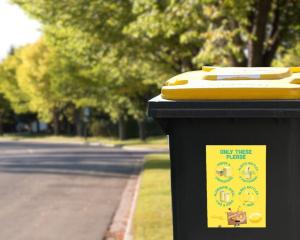
He will receive a formal apology from Te Whatu Ora Southern after deputy health and disability commissioner Deborah James found the health agency breached the man’s right to services of an appropriate standard provided with reasonable care and skill.
In a report released today, Ms James was also critical of the lack of communication, consideration, and respect shown to the man, identified in her report as "Mr A".
At one stage, while in hospital Mr A was left sitting in the pus that drained from a perianal abscess for eight hours.
The situation was described not only as ‘‘extremely uncomfortable’’, but also humiliating, particularly because there were three other patients in the room who knew the state the man was in.
Ms James recommended the apology be made in writing and that Te Whatu Ora report back to her on changes to its processes to ensure suitable oversight and management of internal referrals within six months.
A copy of her report with all identifying details removed — except for Southland Hospital — will be used for educational purposes.
Mr A, who was in his 20s, first received treatment for a perianal abscess on November 1, 2019, after he went to the Southland Hospital emergency department (ED) on the advice of his general practitioner.
He was admitted to the surgical ward and the abscess was cut open and drained.
He was sent home the next day and referred to the district nursing service for further care.
The following year, in April 2020, he developed another perianal abscess, but due to the Covid-19 lockdown, and because his condition was not life-threatening, he did not go to ED.
The abscess burst on its own and was taken care of through antibiotics.
Mr A experienced a third abscess on June 26 that year and for that one he did go to ED.
He was admitted to the surgery ward, but the abscess again burst of its own accord while he was waiting for treatment.
In his account to Ms James, Mr A said he was told the nurse did not want to clean it until after the surgeon had taken a look.
Consequently, he was left sitting in the abscess drainage for eight hours.
Te Whatu Ora Southern accepted that Mr A should have been cleaned and changed, and it apologised for that, Ms James’ report said.
Mr A was referred from general surgery to a colorectal subspecialist to review the results of a magnetic resonance imaging (MRI) scan.
However, Mr A did not hear his MRI results.
Yet it was discovered he had a fistula, an infected tunnel between the skin and the anus, causing the problems.
A referral was made for surgery, but it was incorrectly made to general surgery.
When that error was discovered, a letter was typed referring him to the colorectal unit, but it "appears not to have been received by the referral centre", Ms James’ report said.
By the time he developed a fourth abscess, Mr A had run out of sick days at work and decided not to go to hospital.
When he asked his GP for antibiotics for a fifth abscess, the GP referred him to the colorectal team at the hospital.
Still, Mr A heard nothing.
In fact, due to the communication issues at Southland Hospital his case had been closed.
Then, on March 3, 2021, Mr A called the hospital.
The next day, he spoke to a colorectal clinical nurse specialist.
He was seen on March 22, 2021, by a general surgeon with a colorectal subspecialty.
On April 21, 2021, Mr A underwent a surgery for the fistula and has reported an improved quality of life since.
A statement from the Health and Disability Commissioner today said Te Whatu Ora had undertaken a review of its colorectal services and already put in place several changes including:
- implementing a new patient management and booking system in November 2023
- implementing an electronic internal request form for surgery to reduce paper referrals
- weekly referral triage clinics for general surgery
- further staff training on internal referral prioritisation
- developing a quick guide for consistent triaging
- reporting and active management of referrals.












